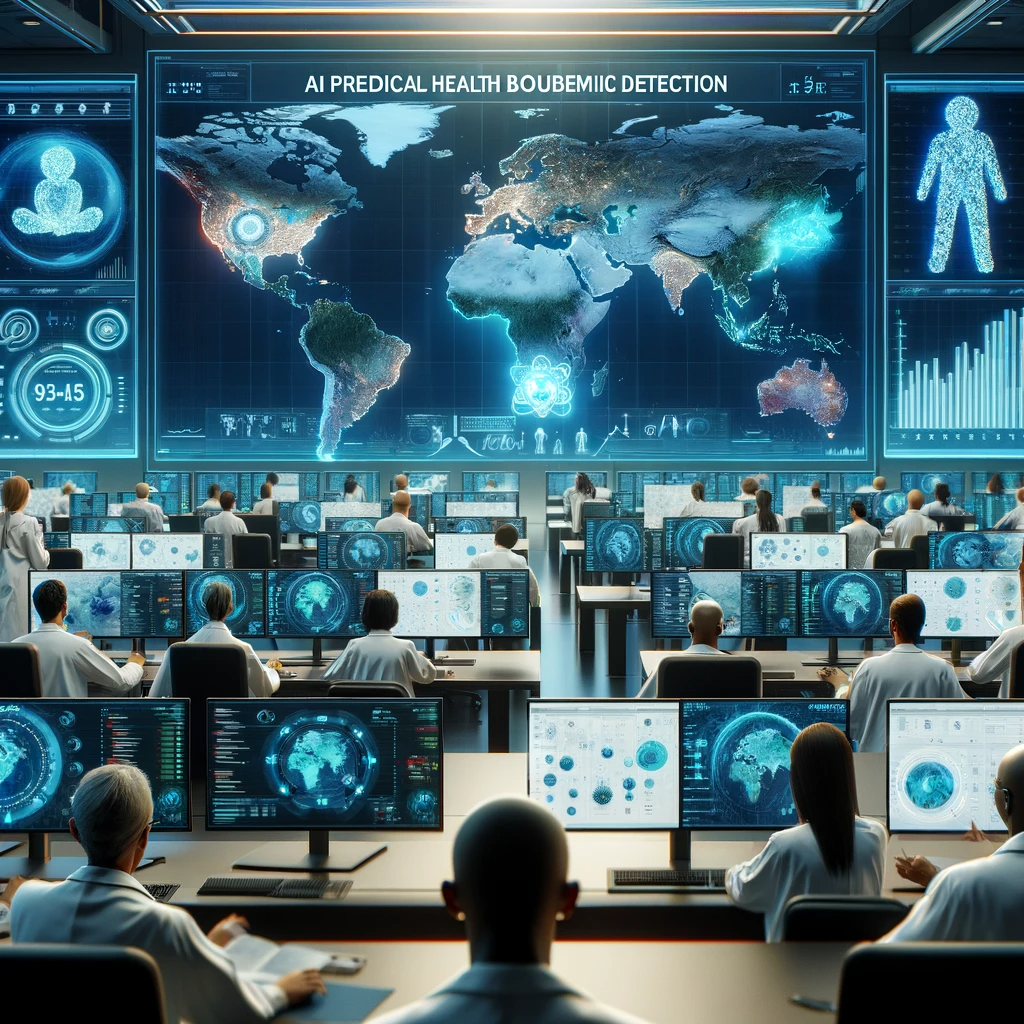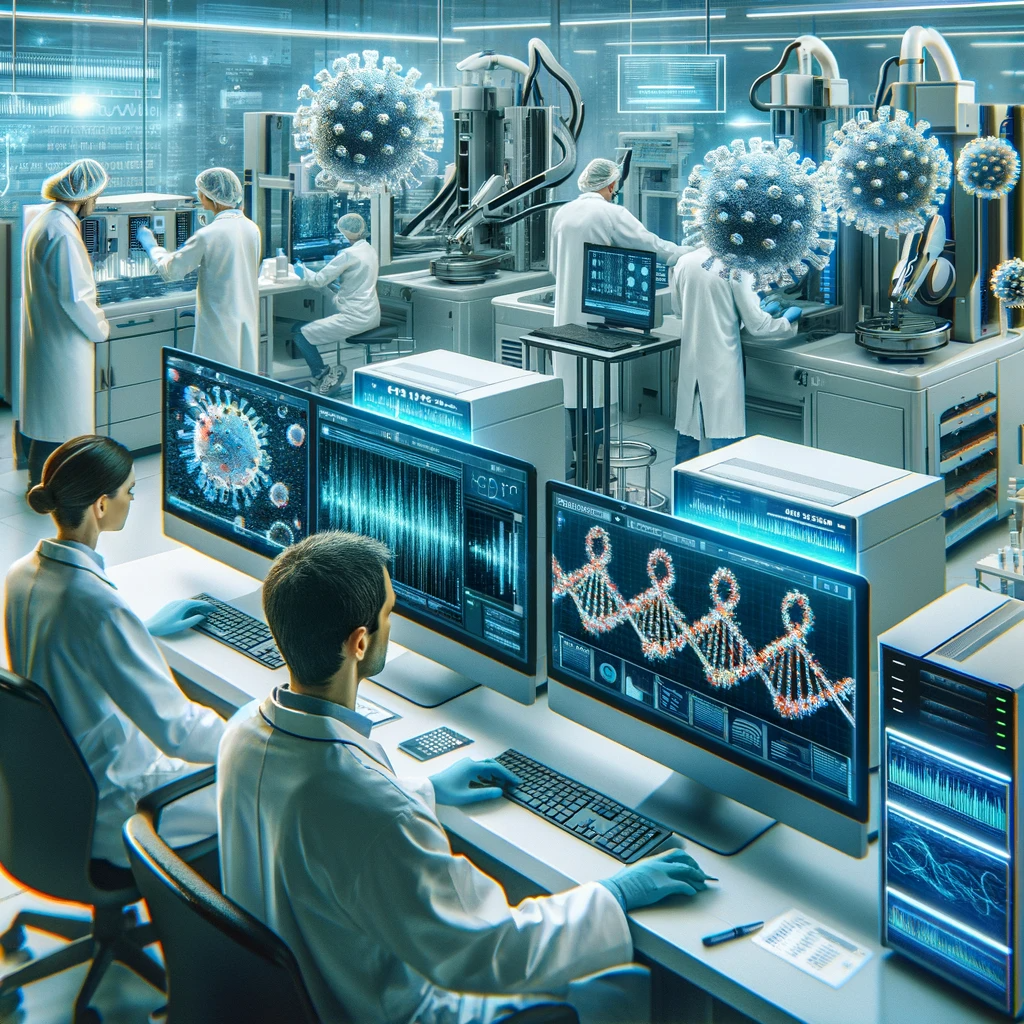Introduction
In our increasingly interconnected world, the swift and accurate detection and tracking of infectious diseases have become paramount for global health. The COVID-19 pandemic has exposed the limitations of traditional methods in pandemic surveillance, where reliance on human reporting, clinical diagnoses, and labor-intensive laboratory testing often results in delayed outbreak identification. In this comprehensive exploration, we delve into the transformative potential of Artificial Intelligence (AI) in early pandemic detection and tracking. This article will provide an in-depth examination of AI’s capabilities, the challenges it faces, and the profound impact it could have on our ability to safeguard public health on a global scale.
The Role of AI in Pandemic Detection
AI stands at the forefront of revolutionizing pandemic detection through its capacity for data analysis, pattern recognition, and predictive modeling. What sets AI apart is its ability to analyze vast datasets in real-time, making it an invaluable tool for identifying early disease outbreaks. Machine learning algorithms process diverse data sources, including social media, news reports, and healthcare records, enabling AI to recognize unusual patterns or symptom clusters that may indicate an outbreak. Furthermore, Natural Language Processing (NLP) empowers AI to scan textual data for potential early disease indicators, while predictive modeling allows for forecasting disease spread and assists in resource allocation and containment strategies.

AI and Big Data Integration
The effectiveness of AI in pandemic detection reaches its zenith when integrated with big data sources. This integration empowers AI systems to monitor an array of factors, from weather patterns and travel data to population movements and healthcare infrastructure. By combining AI’s analytical prowess with real-time big data, we gain access to a comprehensive and accurate understanding of disease outbreaks. This newfound knowledge facilitates rapid and informed response efforts, ensuring timely interventions to contain the spread of infectious diseases.
Early Warning Systems
AI-driven early warning systems represent a paradigm shift in pandemic preparedness and response. These systems are designed to continuously monitor diverse data sources, promptly detecting anomalies and potential outbreak sites. When coupled with predictive modeling, they provide invaluable insights into the trajectory of a disease outbreak. This empowers public health authorities to proactively implement measures and allocate resources where they are needed most, reducing the impact of pandemics.
Challenges and Limitations
While the promise of AI in pandemic detection is substantial, it is not without its share of challenges and limitations. Concerns related to data privacy, biases in AI algorithms, and the necessity for access to comprehensive data sources must be effectively addressed. Additionally, deploying AI in resource-constrained regions poses logistical challenges, and ensuring the ongoing validation of AI systems is crucial for their widespread adoption and effectiveness.
Ethical Considerations
The ethical utilization of AI in pandemic detection is of paramount importance. Upholding principles of fairness, transparency, and accountability in AI algorithms is essential to maintain public trust. Striking a balance between the imperative of public health surveillance and individual privacy rights presents a complex ethical dilemma that requires thorough consideration.
Technological Advancements
Recent strides in AI technology, including developments in deep learning and neural networks, have further expanded its capabilities in pandemic detection. These advancements enable AI systems to process and analyze data with unparalleled accuracy and speed, leading to more reliable early detection and enhanced response measures.
AI’s Role in Vaccine Development
AI’s contributions extend beyond early detection and encompass vaccine development. AI algorithms can rapidly analyze genetic data to predict potential vaccine candidates, expediting the vaccine development process. This acceleration in vaccine development enhances our preparedness for pandemics, ensuring more efficient and effective responses.
International Collaboration
Effectively detecting and responding to pandemics necessitates international collaboration and the sharing of crucial data. AI can facilitate such collaboration by providing a unified platform for data analysis and information exchange among countries and organizations. This collaborative approach is vital for a coordinated global response to pandemics.

Conclusion
Artificial Intelligence possesses the transformative potential to revolutionize the early detection and tracking of pandemics, offering a faster and more comprehensive approach compared to traditional methods. By harnessing AI’s data analysis capabilities, pattern recognition algorithms, and predictive modeling, we can significantly enhance our ability to identify and respond to infectious diseases promptly. However, addressing the associated challenges, ensuring ethical utilization, and fostering global collaboration are pivotal steps in fully realizing the potential of AI in pandemic detection, ultimately safeguarding public health on a global scale.
